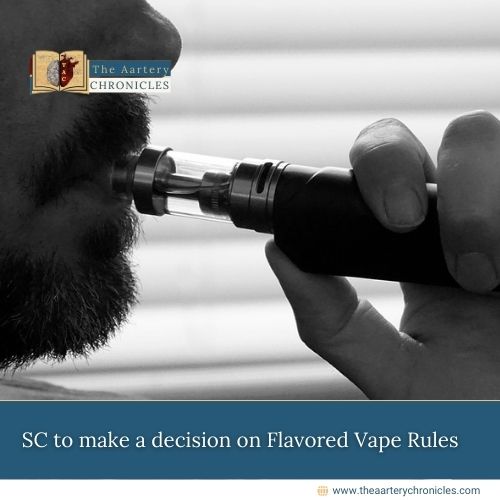

SC to make a decision on Flavored Vape Rules
Introduction
The U.S. Supreme Court is set to hear a critical case on flavored vaping regulations. The debate centers on federal restrictions imposed to combat youth vaping, which surged to alarming levels in recent years. While regulators argue the crackdown protects children, vaping companies claim the rules unfairly impact adult smokers seeking alternatives to traditional cigarettes.
Why the Case Matters
The Food and Drug Administration (FDA) has denied over a million applications to sell candy and fruit-flavored e-cigarettes. Anti-tobacco advocates credit these efforts with reducing youth vaping rates to their lowest in a decade. However, vaping companies, including Triton Distribution, argue these flavors are essential tools for adults attempting to quit smoking.
The FDA's Stand Against Flavored Vapes
Federal authorities maintain that sweet-flavored vapes are a significant draw for teenagers. The FDA began ramping up regulations after e-cigarette use among youth hit epidemic levels in 2019. Recent steps include banning flavors appealing to children, approving only tobacco-flavored vapes, and recently authorizing menthol-flavored options for adult smokers.
The Industry's Counterarguments
Vape manufacturers challenge the FDA’s stance, asserting that the agency overlooked evidence supporting their claims. They argue sweet-flavoured products are not primarily marketed to children but are instead critical for helping adults transition away from smoking. Triton Distribution’s case gained traction when the 5th Circuit Court of Appeals ruled in its favour, overturning an FDA decision blocking products like “Jimmy the Juice Man in Peachy Strawberry.”
Regulatory Challenges Persist
Despite the ban, sweet-flavoured vapes remain widely available, reflecting gaps in enforcement. Critics note the FDA’s delayed approach to regulating the multibillion-dollar vaping industry has allowed these products to persist. However, stepped-up enforcement has contributed to a noticeable decline in youth nicotine use, according to the Campaign for Tobacco-Free Kids.
What's Next?
The case holds national significance as it coincides with President-elect Donald Trump’s upcoming inauguration. Trump’s administration could shift policies after his promise to “save” vaping during his campaign. The Supreme Court’s decision will likely have a lasting impact on public health policies, balancing efforts to reduce youth nicotine addiction while considering adult smokers’ need for cessation tools.
This case highlights the ongoing tension between protecting public health and addressing the needs of adult smokers seeking alternatives to traditional tobacco. The outcome could shape the future of vaping regulations in the United States.
Source: Inputs from various media Sources









